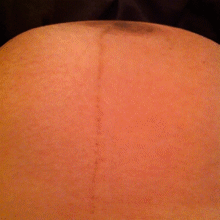After the second trimester of pregnancy, most expectant mothers will feel the fetal movement and will be told to count the fetal movement.
Buddhist expectant mothers may not take it seriously, but more tangled expectant mothers will have a lot of worries and will not sleep well all day long.
Today, Chief Physician Duan Tao will explain to you the common problems in [counting fetal movements].

Q1: Why do you count fetal movements?
Fetal movement will decrease when the fetus suffers from intrauterine hypoxia. Counting fetal movement can help to find the fetus that may have intrauterine hypoxia, and further examination can be used to confirm whether intrauterine hypoxia really exists. Further examination includes electronic fetal heart monitoring and B-ultrasound biophysical score.
Reduced fetal movement is not necessarily due to intrauterine hypoxia. Counting fetal movement is only a simple and easy screening method. Reduced fetal movement reminds us of the need for further examination.

Source: giphy.com
Q2: When do you start counting fetal movements?
Under normal circumstances, fetal movements begin to occur around 20 weeks, and more obvious fetal movements will occur after 24 weeks, with certain regularity.
Most foreign literatures suggest counting fetal movements at 26 ~ 32 weeks, but we do not recommend counting fetal movements prematurely. The initial gestational weeks of counting fetal movements depend on the gestational weeks that can ensure survival after the fetus is born. Due to the limited treatment level of premature infants in China, it is generally recommended to start counting fetal movements after 30 ~ 32 weeks.
Q3: When will fetal movement become more obvious?
Most pregnant women can feel fetal movement, but less than 10% of pregnant women do not feel obvious fetal movement, mainly because obesity or the range of fetal movement is relatively small and is not easy to detect.
Compared with the daytime, the fetal movement will generally increase at night, which is the majority of the plan will suggest counting the fetal movement at night. However, some pregnant women’s fetal movement is not necessarily active at night, or there is no obvious rule, so there is no need to rigidly adhere to the need to count the fetal movement at night.
The baby usually moves more when lying on his side. After lying down, the feeling of fetal movement will be more obvious. However, instead of lying on his back, the baby should take a semi-lying and oblique posture, in which the blood flow of the uterus will usually increase.
After the mother eats, especially after eating sweets, the baby’s fetal movement will increase.

Source: giphy.com
Q4: Is what the standard for normal fetal movement?
Research shows that the sleep cycle of a normal healthy fetus is generally 20-40 minutes, and usually the longest is not more than 90 minutes.
According to this physiological phenomenon, different experts have designed a lot of several fetal movement schemes. At present, the standard recommended by everyone is that fetal movement should not be less than 6 times within 2 hours. Once it is less than 6 times, further examination is required, including electronic fetal heart monitoring or B-ultrasound biophysical score.
If fetal movements are frequent and have reached or exceeded the standard of 6 times in less than 2 hours, there is no need to continue counting.
In general, the proportion of additional visits due to the reduction of fetal movement is about 2-3%. After further electronic fetal heart monitoring or B-ultrasound biophysical score examination, the vast majority of pregnant women with reduced fetal movement will get a reassuring result. For these pregnant women, they can go home safely and continue to count fetal movement.

Q5: Do you need to count fetal movements at a fixed time?
Do you think the fetus is a very obedient and lovely baby? Is it [nine to five]? Is it the cock that gets up when it crows and goes to bed when the lights are turned off?
It is absurd to count fetal movements [double rules]. It is meaningless to fix the time of counting fetal movements every morning, middle and evening. Although some babies are very [disciplined], many babies are very casual and move whenever they want.
Therefore, my personal suggestion is: count the fetal movements once in the morning, afternoon and evening. It is not necessary to start counting at 8 o’clock in the morning on time every day, but only when you think the baby has started to move during this period. Otherwise, the baby will fail to count the fetal movements if he sleeps in.

Source: giphy.com
Every baby’s sleep and fetal movement habits and rules are different, some move more at night, some move more in the morning, don’t have to tangle too much. In 3 time periods, as long as there are 1 ~ 2 time periods to move more, it is impossible to require every baby to move in the morning, afternoon and night, if it is true, you can’t stand it.
The key is to look at the trend, the law and the changes. If the fetal movement is obviously reduced, you must seek medical treatment in time.
Q6: Does every pregnant woman need to count fetal movements?
For pregnant women with high risk factors of fetal intrauterine hypoxia, it is recommended to count fetal movements every day.
For healthy and normal pregnant women, if the daily fetal movements are obvious and frequent, it is not necessary to count the fetal movements every day, but if the fetal movements are felt to decrease in the third trimester of pregnancy, it is necessary to count the fetal movements carefully every day.
Q7: How long does the fetus stop and move before it can be counted as another fetal movement?
Some fetuses will move for a long time, but no matter how long they move, they can only be counted as one fetal movement.
As for how long to stop and move to calculate another fetal movement, there is no unified standard, generally think at least the fetus to stop for a few minutes before moving to calculate another time, most people say is intervals of 5 minutes. In fact, there is no need to be so serious and tangled, the number of fetal movement is not 1 + 1 = 2 mathematics, mainly looking at the general trend.

Source: giphy.com
Q8: Does fetal movement matter?
Some doctors will tell you that more fetal movement may also be due to intrauterine hypoxia, and the fetus is [struggling] due to hypoxia. This is a wrong statement, because there is no clinical evidence to prove that more fetal movement is related to intrauterine hypoxia and adverse consequences of the fetus.
Therefore, there is no need to worry about more fetal movements and run to the hospital all the time.

Source: giphy.com
Fetal movement is a kind of magical existence, it can let you really feel the existence of that small life in your stomach, and will interact with you. Fetal movement is usually regular, can also be irregular, irregular is also a kind of regular.
The change of fetal movement is warning sign, not mathematics. It is screening, not diagnosis. Count fetal movements, but don’t tangle too much.
This article starts with [Dr. Duan Tao] (ID: Dr_Duan_Tao). It’s a bit of a panic to have a baby and raise a child? Listen to Duan Tao talk about reliable science popularization! If you need to reprint, please contact the original author.

